Committed to Consciousness – The Case for Ethical Fashion
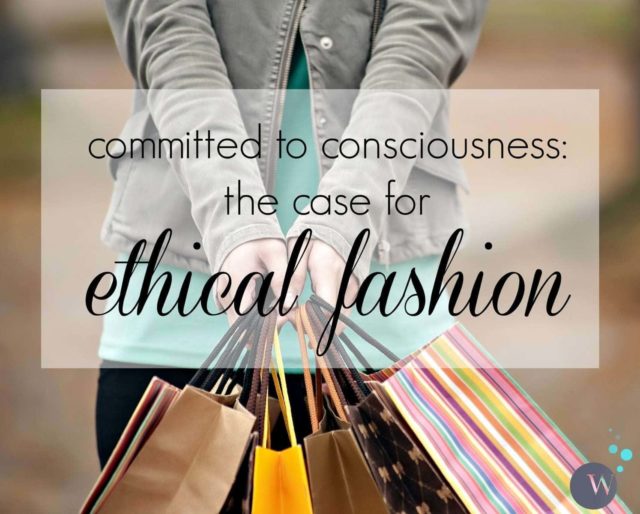
It’s not easy to be an informed consumer. In fact, it can be downright disheartening, particularly when it comes to something you love.
For example, Fashion. I lovingly sketched clothing designs in the margins in my notebooks as a child, I cried when I first touched Chanel, and my mother bought be a Marc Jacobs handbag for my 18th birthday because she knew it would complete me (it did). I typically subscribed to the cost-per-wear principle, and frequently eschewed Forever 21 for after-Christmas sales at Saks; however, I still indulged in inexpensive impulse buys pulling at my wallet from J. Crew, H&M, Ann Taylor, and more. How could I turn down the siren call of $5 t-shirts or handfuls of wear-once sundresses for that weekend trip? Behind the giddy high of scoring a bargain, a tiny voice scratched at me, wondering how these clothes could be so cheap.
In April 2013, I found out.
Bangladesh has approximately 5,000 garment factories that employ more than 4.5 million people—80 percent of them are women. Many of these women come from rural villages and have little education, and earn around $37 a month.
On April 24, 2013, an eight-story garment factory called Rana Plaza collapsed on the outskirts of Dhaka, killing at least 400 people and injuring many more. It is the worst disaster in the history of the garment industry. Workers at this factory produced clothes for brands such as Primark, a British retailer, and Joe Fresh from Canada. Authorities warned that the building was unsafe, and factory owners responded by threatening to fire people who did not carry on working as usual. Almost 3,000 people, most of them female garment workers, are believed to have been in the complex when it suddenly came down.
I am a feminist and a shopper, social change in stilettos. My personal convictions, I realized, were at odds with the clothes on my back. As an advocate for women, I couldn’t support an industry that threatened them. And I certainly couldn’t feel good knowing that what I was wearing, stylish as it may be, came out of hurting someone else.
From then on, I committed to doing my best to support brands I could feel confident and positive about wearing. It’s not always easy, and I haven’t always succeeded, but that’s why I believe in conscious consumerism. If we can add a layer of knowledge, of understanding, of empathy, to our shopping we can be more confident feeling good and looking good in our clothes. And that truly is something to love.
Where can you turn when you’re looking to invest in your own ethically styled look? Here are a few of my favorite spots:
- Zady: The leader in conscious consumerism, Zady exclusively retails “slow fashion” for men, women, and the home. Zady also recently launched its own in-house label of American-made, ethically sourced closet essentials.
- Everlane: Best source for classic trousers and tops perfect for work AND made transparently in factories around the world. I live in their Ryan tees and button-down shirts, and both my husband and mother have gotten Everlane cashmere sweaters for Christmas.
- The Reformation: L.A.-based retailer known for super sexy dresses. They use deadstock, or vintage, fabric for beautiful gowns or grab-and-go weekend minis.
- H&M: Including H&M might be controversial, but I believe in their commitment to the environment and ethical production as a company. The Conscious Collection reuses fabric and renewable materials. Bonus tip: Recycle any fabric (read: old clothes, socks, and dirty dishtowels) at your local H&M and they’ll give you a discount for your next purchase.
- Verdalina: A Richmond, Virginia boutique with an expertly curated collection of eco-fashion goods.


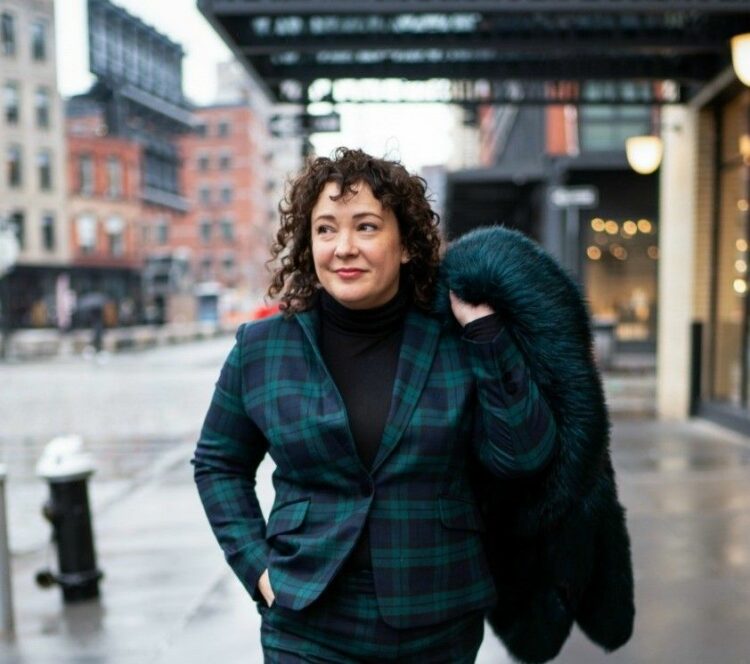
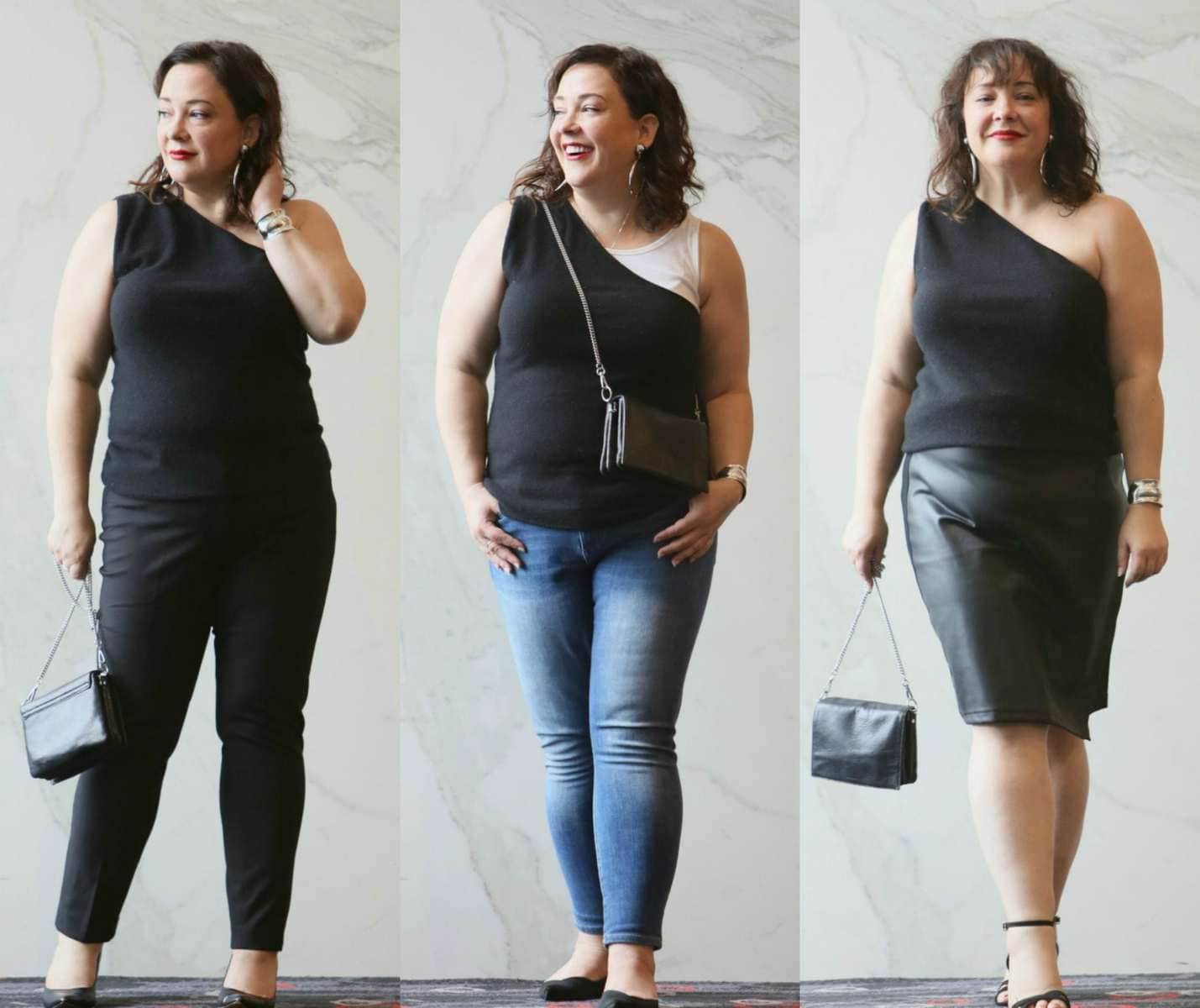
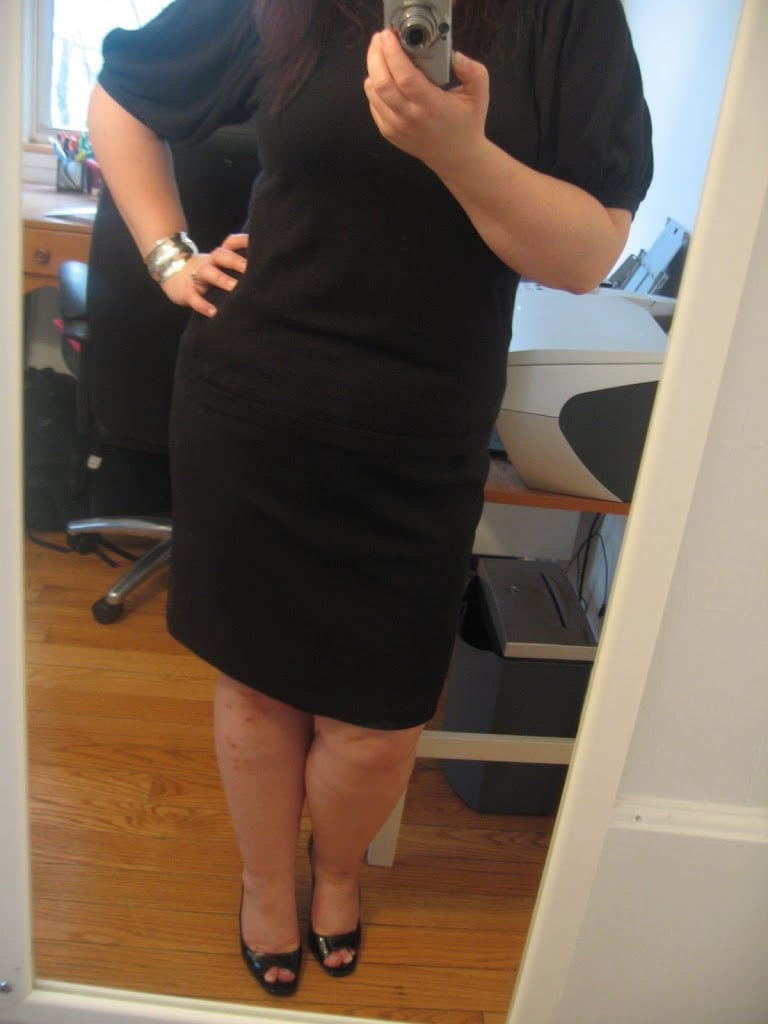
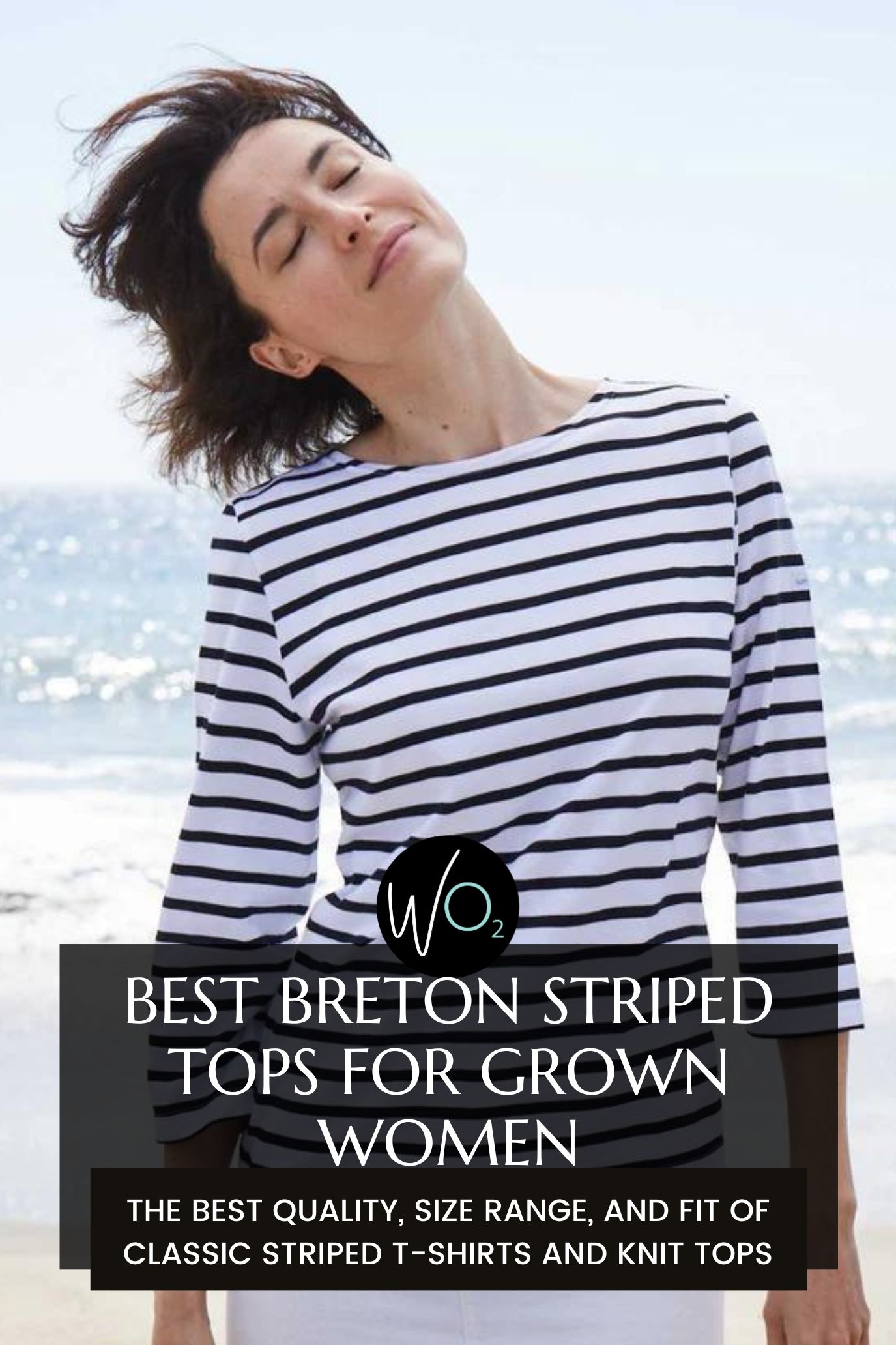
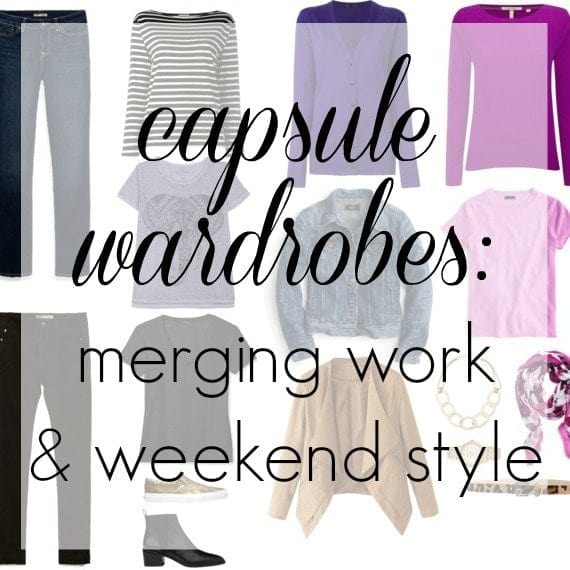
I do Gywnnie Bee, and this is one reason I like the service. By sharing clothing, I’m not buying so much “disposable” fashion. Thanks for the thoughtful post.
I’ve never tried Gwynnie Bee myself, but I’ve heard nothing but wonderful things about it! I’m so glad it’s a service that’s available. Thanks for reading, Beth!
The source of the fabric is also important. Central Asian countries produce a lot of cotton which is harvested by laborers who are virtually slaves. Very much like the old days of Stalin. http://www.cnn.com/2015/10/02/opinions/uzbekistan-turkmenistan-cotton/
Great article and point, Jane. Thank you for sharing!
Great article, KC. Thanks for taking the time to write it. I must say, like many other women, I am dismayed at how hard it is to buy ethically at a bigger size. (Also dismayed that 14/16 is considered “niche” when it is the average size of American women.)
I have been working hard to make better choices in general about my clothing. I did a huge purge of stuff I just…wasn’t feeling. Old stuff. Shabby stuff. Stuff that felt “too young/immature”. Things that were too tight. I have been focusing on purchasing things that really make me feel happy and I can feel good about. Things that aren’t wasteful and totally feeding fast fashion and taking up space. I will admit to a backslide on some target tees and cardigans recently, but it is a process. But I have been really in to NYDJ (they have LOVELY plus sized henleys that are great for work and are in fun patterns) and Karen Kane. It also feels good to support things made in America as well as made ethically. I am an amazon prime member and will wait out price drops for KK and NYDJ, fwiw. (Heads up: amazon is having a veterans day sale and 20VETERANS gets you 20% off these brands.)
Thanks, Lexa! Means a lot coming form you. 🙂
I love hearing about your clothing journey – closet purging is an often emotional and messy process. How would you define your style now, or at least, what your Pinterest closet should be?
It isn’t only about the treatment of people in poor countries and the impact on the world environment. It’s also about jobs and economies in our own countries. What happened to all the thousands of American garment workers who were laid off when American companies started outsourcing all their manufacturing?
Fast Fashion is a complex mess. It’s worse than I thought and I can imagine terrible scenarios! I highly recommend reading Overdressed: The Shockingly High Cost of Cheap Fashion by Elizabeth Cline.
Chris
Chris, you are on point. The American fashion industry certainly took a hit when overseas manufacturing became so cheap to purchase.
Thanks for this post. I’ve been rethinking my shopping habits. As a fashionably disabled stay home mom, I’ve found comfort in a quick purchase. But lately I’ve been thinking more about what that really means in the grand scheme. I love Karen Kane’s clothing and I scour sale racks when I find it. I also order my favorite shoes, Chacos, from the “custom” menu because these are handmade in Michigan, (Yes, I know they are not “stylish”. I have severe arthritis in my feet and I live in Florida. They work. Plus, custom means I can have any color choices I want!).
It’s time to stop being basic and start payments more attention.
I love the idea of comfortable custom shoes, Krista! I may need to look into this too. 🙂 Thank you so much for reading and considering your shopping choices.
As a side note, Rent the Runway is also an ethical option, particularly for fancy events! https://www.renttherunway.com/
They have a wide range of sizes and it’s much better for the environment to “borrow” a dress than purchase one, wear it once, and discard it.
I have never heard the ethical brands you mentioned, maybe because I live in Europe. However including H&M in the list is absolutely not appropriate in my opinion regardless of the green washing they are trying to do. They continue to use subcontractors from countries like Bangladesh and don’t care much about the conditions these ppl work in or the use of child labor. Sand-spraying jeans to make them look distressed is deadly to the workers and is allowed in Bangladesh, while it is illegal in countries like Turkey for example. Therefore dont just look at the brand, look at where your clothes were made!
Minka, thank you so much for your point of view on H&M. You are right – they still have a very long way to go in many regards, and the country of origin makes a big difference. From an environmental perspective, H&M is the biggest user of organic cotton, and they are working hard to repurpose and recycle garments with their Conscious Collection. By no means is it perfect, but it is a good example of a mainstream retailer working to incorporate this into their business model. In the meantime, I encourage you to check out the other brands I mentioned! They have wonderful merchandise that definitely meets the “ethical” criteria.
I just recently watched this 45 minute documentary about the factories in Bangladesh: https://youtu.be/gOKyCH4oz3Q
It’s heartbreaking, really, what hides behind cheap clothes 🙁
I’ve been consciously avoiding the mall and other clothing stores (less temptation!) and trying to get more wear out of the clothes I currently own. I haven’t found too many stores yet that produce their clothes in a sustainable way that also fit my style.
Ugh, sorry, I didn’t realize Youtube would embed such a huge image into the post!
No worries, Lina! Thank you for sharing the video and shopping consciously. Have you watched True Cost yet?
I haven’t yet! But it’s on my list 🙂
I have read similar posts on other blogs–and I am delighted to read another. Really delighted! It helps me keep my resolve to avoid those stupid quick purchases of things I don’t really need, just for a new thrill. I confess to missing that thrill though. I never was an addict to retail therapy in any way, but it was an occasional way to fix a bad mood. I need to keep reminding myself that my little quick fix of shopping joy is not worth the price of human and environmental devastation. I am happy to be part of the solution.
I have to admit that I do sometimes struggle with staying creative in my daily dressing, which used to feel so fun and adventurous with the semi-regular infusion of a new, often inexpensive item. Some days the limits of working within my existing, pared down closet spark great new ideas; sometimes, dressing in the same old stuff just feels boring. . . That’s when I try to make time to do some second-hand shopping, which I can afford and is also a sustainable/conscious practice.
I recently made my first Everlane purchase, and my new tee is the nicest one I’ve bought anywhere! Also loving my new loafers from them. Worth the wait to save up for these items.
Let’s all keep supporting each other to do the right thing!
Linda, I totally agree, and I’m so glad this was enjoyable for you! It was a pleasure to write. I agree with you. It does feel nice to add a little dose of trend in our wardrobes, and I love that you recommend second hand shopping to do that – such an on point suggestion. And doesn’t Everlane have wonderful t-shirts? I tried to buy their loafers, but they were too narrow for my size 10 stompers. 🙂
Size 11.5, but I’ll give them a pass on shoes–very hard to make a go in the “special sizes” categories of length or width…
Excellent notion. Now, for those of us above a size 12 (or L, from Everlane…), do you have any sources for ethical fashion that goes up to sizes 16/18/XL, or (ideally) higher?
Hi Roselyne, thank you! I’m afraid that while the landscape for ethical fashion is narrow, it’s even worse for a comprehensive range of sizes. Eileen Fisher offers garments across all sizes, but that’s the only retailer I’m currently aware of that does. Fortunately, they’ve gone through a rebrand and their designs are now less “art teacher” and more “chic city dweller.” I’ll do some research on brands that offer clothes over a size 12, and in the meantime, I’d encourage you to reach out to some of your favorite brands and ask them about their supply chain. They might have a surprisingly positive answer, or at the least, they’ll realize that their audience cares about this as an issue. I know this answer wasn’t a clearcut one, but I hope it is helpful!
Clearcut would be lovely, but I’ll take vaguely helpful! It’s the challenge of finding ethically made clothing in a size that fits my tush that doesn’t make me look like a (really uncomfortable) art teacher. (No matter how much I like flowy fabrics on others, I really appreciate tailored shoulders and cinched waists on me.)
I have the same problem. Do try out Eileen Fisher–I buy on eBay a lot, and Nordstrom Rack pretty reliably has some on the clearance racks. Many pieces are “shaped”–avoid “Boxy.” I believe NYDJ makes its clothes in this country, which is a good indicator, I believe.
And don’t forget that resale is ethical!
Also, I wrote Everlane to suggest that since the average American woman is a size 12/14, they were missing about half of their potential market.
I’m so glad you did, Kathryn! Great idea to encourage Everlane to include more women in their audience!
Yeah, but I got a lot of blah blah back about economies of scale–hello? So many of us would snap that stuff up if it came in our size!
Really? What an unfortunate response. I’m sorry to hear that!
My cynical theory is that Everlane cuts off at a size 12 so that it can maintain some cachet as a prestige brand. My second most cynical theory is that Everlane assumes its brand desirability is so strong, size 14-and-up women will shell out for accessories from a brand that can’t be bothered to clothe them. So they’ll get our money anyway.
I refuse to buy a thing from Everlane until they start making clothing in sizes up to 18 or 20.
Thank you for taking the time to reply WITHOUT an ounce of defensiveness. My frustration with “ethical” sourcing has definitely been size-based and it’s ridiculous that this is turning into a status symbol for smaller sizes. Women with size 16 shoulders shouldn’t have to be tut-tutted for not buying ethically.
You are absolutely right, Lisa. It seems like ethical fashion and size 12+ are both considered “niche” audiences, when in fact, both should be par for the course.
Karen Kane makes most of its clothing in this country and is very transparent about where their items are made and where their fabric is sourced. They have a lovely plus size collection.
Great suggestion, Val! Karen Kane has great items and is a wonderful example of a non “eco” brand doing things right.
Thanks so much for sharing about this! I’ve been trying to educate myself on ethical fashion lately, so this is very timely. I’d also like to give a plug for Noonday Collection as a resource for ethical jewelry.
Hi Abby, thanks for the recommendation on Noonday Collection! I’ll have to check them out. I’m glad the post was helpful to you.